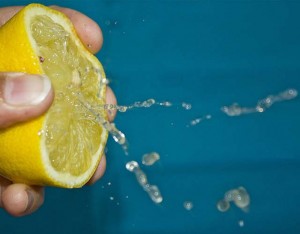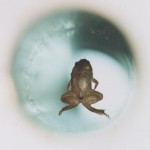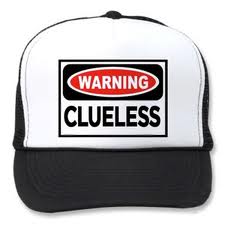 A news story, reported by Michael A. Fuoco in the Pittsburgh Post-Gazette in 1995, began:
A news story, reported by Michael A. Fuoco in the Pittsburgh Post-Gazette in 1995, began:
“ARREST IN BANK ROBBERY,
SUSPECT’S TV PICTURE SPURS TIPSAt 5 feet 6 inches and about 270 pounds, bank robbery suspect McArthur Wheeler isn’t the type of person who fades into the woodwork. So it was no surprise that he was recognized by informants, who tipped detectives to his whereabouts after his picture was telecast Wednesday night during the Pittsburgh Crime Stoppers Inc. segment of the 11 o’clock news.”
 Apparently what happened is this. Mr. Wheeler, encouraged by friends to rob a bank or two, balked at first, afraid that the ever-present video cameras would capture the robbery on tape. His friends told him that he could render himself invisible to the cameras by covering his face with lemon juice. Not a complete fool (?), Mr. Wheeler tested the concept by first applying lemon juice all over his face, then taking a Polaroid picture of himself. When Mr. Wheeler examined the photo and saw no evidence of his own presence, he blithely went on his brief robbery spree, safe in the belief that the lemon juice would work its magic. It didn’t, of course, and the resulting bank videotapes pointed the finger at the befuddled Mr.Wheeler. Obviously he wasn’t simply an inept bank-robber; he was also an incompetent photographer, and perhaps blinded by the lemon juice he’d squirted into his eyes, he took a photo of the ceiling, or somehow or other ruined the shot.
Apparently what happened is this. Mr. Wheeler, encouraged by friends to rob a bank or two, balked at first, afraid that the ever-present video cameras would capture the robbery on tape. His friends told him that he could render himself invisible to the cameras by covering his face with lemon juice. Not a complete fool (?), Mr. Wheeler tested the concept by first applying lemon juice all over his face, then taking a Polaroid picture of himself. When Mr. Wheeler examined the photo and saw no evidence of his own presence, he blithely went on his brief robbery spree, safe in the belief that the lemon juice would work its magic. It didn’t, of course, and the resulting bank videotapes pointed the finger at the befuddled Mr.Wheeler. Obviously he wasn’t simply an inept bank-robber; he was also an incompetent photographer, and perhaps blinded by the lemon juice he’d squirted into his eyes, he took a photo of the ceiling, or somehow or other ruined the shot.
Inspired by the story of Mr. Wheeler’s incredibly incompetent bank robbery attempt, David Dunning, a professor of social psychology at  Cornell University, and his research assistant, Justin Kruger, began a series of research projects that resulted in the publication in 1999 of a research paper titled “Unskilled and Unaware of It: How Difficulties in Recognizing One’s Own Incompetence Lead to Inflated Self-Assessments,” which was awarded the satirical Ig Nobel Prize in Psychology for the year 2000. But we wouldn’t want to overlook Dunning and Kruger’s research simply because it was awarded a prize by a group that singles out research that contains a humorous or unexpected result. After all, Andre Geim won the Ig Nobel prize in Physics that same year for levitating a frog with magnets [see the photo at left], then won the actual Nobel prize in Physics in 2010 for his research on graphene.
Cornell University, and his research assistant, Justin Kruger, began a series of research projects that resulted in the publication in 1999 of a research paper titled “Unskilled and Unaware of It: How Difficulties in Recognizing One’s Own Incompetence Lead to Inflated Self-Assessments,” which was awarded the satirical Ig Nobel Prize in Psychology for the year 2000. But we wouldn’t want to overlook Dunning and Kruger’s research simply because it was awarded a prize by a group that singles out research that contains a humorous or unexpected result. After all, Andre Geim won the Ig Nobel prize in Physics that same year for levitating a frog with magnets [see the photo at left], then won the actual Nobel prize in Physics in 2010 for his research on graphene.
Geting back to Dunning and Kruger, their research identified a psychological phenomenon that has come to be known as the Dunning-Kruger effect, neatly defined for us in Wikipedia as “a cognitive bias in which unskilled individuals suffer from illusory superiority, mistakenly rating their ability much higher than average. This bias is attributed to a metacognitive inability of the unskilled to recognize their mistakes.” (Don’t be put off by the five-syllable word. Metacognition refers to your ability to know how well you are performing, when you are likely to be accurate in judgment, and when you are likely to be in error.) People fail to grasp their own incompetence, precisely because they are so incompetent. And, since overcoming their incompetence would first require the ability to distinguish competence from incompetence, people get stuck in a vicious cycle. As Dunning and Kruger state in their paper:
“The skills needed to produce logically sound arguments, for instance, are the same skills that are necessary to recognize when a logically sound argument has been made. Thus, if people lack the skills to produce correct answers, they are also cursed with an inability to know when their answers, or anyone else’s, are right or wrong. They cannot recognize their responses as mistaken, or other people’s responses as superior to their own.”
We, of course, know that we aren’t really good at everything. Most of use would rate ourselves fairly low on our knowledge of quantum mechanics, our ability to translate Sanskrit fables, or any other area where there is some minimum threshold of knowledge that has to be attained to be even minimally functional. Without that basic knowledge level, we face an undeniable reality constraint, and thus rate our skill levels very low (we actually tend to mistakenly rate ourselves worse than our peers). That same type of reality constraint often appears in physical domains, where it is clear that we simply lack the necessary talents to, for example, drive a golf ball 300 yards, in spite of our in-depth knowledge of the bio-mechanics of a perfect golf swing and the physics of golf ball flight.
 But in everyday domains, such as business decision-making, parenting, social relationship skills, constructing a logical argument, or most other common tasks of life, we take it for granted that we are good at it. None of us are immune. In his 2005 book, Self-Insight: Roadblocks and Detours on the Path to Knowing Thyself (Essays in Social Psychology), Professor Dunning writes about this effect in the essay titled “Ignorance is Bliss,” referring to it as The Anosognosia of Everyday Life, a sort of psychological analogue to anosognosia, where incompetence, like anosognosia, not only causes poor performance but also the inability to recognize that one’s performance is poor. This is where it gets to be a bit scary. The research tells us that if we really lack skill in some specific performance domain, the likelihood is that our own incompetence will act like a set of psychological blinders, preventing us from recognizing how really bad we are at it. And worse, the more incompetent we turn out to be, the larger the gap between our actual and our perceived performance.There is a converse to this, as might be expected. Top performers–those who really understand what is involved in performing at the highest levels–have a tendency to underrate themselves, largely because they assume that everyone else is actually better than they turn out to be.
But in everyday domains, such as business decision-making, parenting, social relationship skills, constructing a logical argument, or most other common tasks of life, we take it for granted that we are good at it. None of us are immune. In his 2005 book, Self-Insight: Roadblocks and Detours on the Path to Knowing Thyself (Essays in Social Psychology), Professor Dunning writes about this effect in the essay titled “Ignorance is Bliss,” referring to it as The Anosognosia of Everyday Life, a sort of psychological analogue to anosognosia, where incompetence, like anosognosia, not only causes poor performance but also the inability to recognize that one’s performance is poor. This is where it gets to be a bit scary. The research tells us that if we really lack skill in some specific performance domain, the likelihood is that our own incompetence will act like a set of psychological blinders, preventing us from recognizing how really bad we are at it. And worse, the more incompetent we turn out to be, the larger the gap between our actual and our perceived performance.There is a converse to this, as might be expected. Top performers–those who really understand what is involved in performing at the highest levels–have a tendency to underrate themselves, largely because they assume that everyone else is actually better than they turn out to be.
You might think that if we saw our own performance scores on a task, along with the scores of others on the same skill set, we might do a better job of rating our own performance. Unfortunately, that isn’t the case. Knowledge of how well others might be doing doesn’t improve the ability of an incompetent to evaluate her own incompetence. Maybe that’s why we think we are better than average drivers, better than average managers; we think we are better than average at just about everything!
Over two centuries ago Thomas Jefferson wrote
“The wise know their weakness too well to assume infallibility; and he who knows most, knows best how little he knows.”
In Part III of this series on Cluelessness, I’ll write about what, if anything, we can do to be a little less clueless.
Perhaps I should rethink my chances of making the team for Sochi!
I suspect you already know the answer to that question.
funny! Perhaps that is why so many business owners attempt to sell their business by themselves (and fail, or do so, then have grave regrets afterwards). They don’t know that selling a business requires a very different set of skills from building one. At Successful Transition Planning Institute, we counsel owners to uncover the “unknown unknowns”, by talking to lots of different advisors and getting a lot of education (like the free stuff on our site).